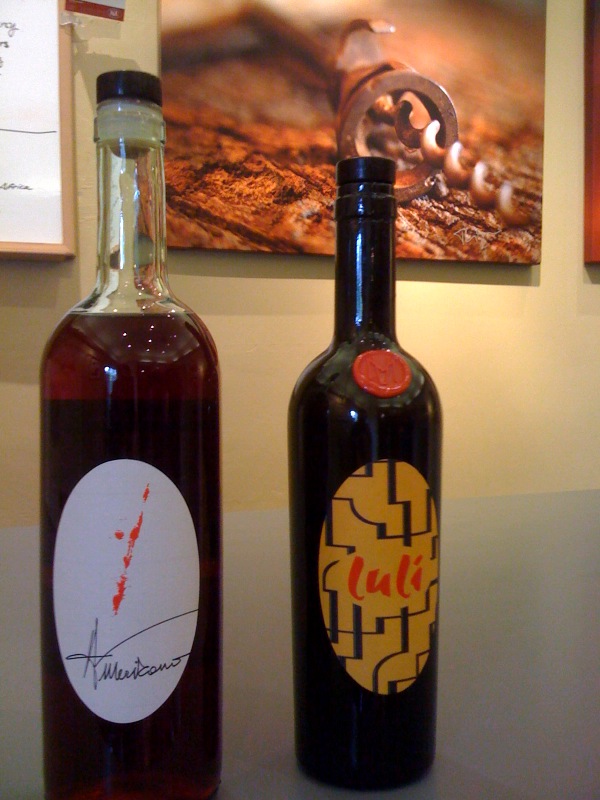Aperitif Profile #1: Chinato and other Italian Liqueurs
It's easy to lump all wine-based aperitivos into the vermouth category, which is what most people tend to do, but to do so would be to sell so many amazing products short. Before I start off on an explanation about what these two interesting looking bottles on the left are, I just want to make sure everyone knows what we're talking about here. David OG and I are on a mission to build the best aperitif, liqueur, and digestive collection in the United States, but we need help drinking it - we can't buy it all on our own. When I use any of the above terms, I'm speaking of beverages that are usually wine-based, with some spirit added to fortify it, and that are usually macerated in a special blend of herbs and spices. That's basically what vermouth is, but depending on when and how you're supposed to drink them, there are different names and classifications. Aperitivos are for before the meal and for awakening the appetite, whereas digestivos come after and help settle your stomach. Not all aperitivos are wine based, so technically those would not classify as vermouth (i.e. Campari, Aperol, Pernod), but they are all still considered aperitivos.
The two bottles pictured are fantastic new products that we just brought in from a small local importer called Farm Wines. They specialize in organic and biodynamic wines from all over the world, so I was excited when our old pal Jeff Vierra told me he was beginning to import fortified wines as well. We met for lunch so that I could try both bottles and we started with the Vergano Americano Aperitif $39.99. This is a red wine based aperitif that could function as a super-high quality Campari substitute. The combination of bitter herbs is matched by the perfect balance of sweetness and the tannin from the wine is also present on the mouthfeel. The Vergano is a grignolino wine base made by organic wine estate Cascina Tavijn. They start by steeping a neutral spirit with spices and herbs and then later adding it to the wine to form the blend. I can't wait to take it home tonight and use it in a Negroni in place of Campari. After that, I'm pouring it on the rocks with some club soda. Then I'm going to drain the rest of it straight from the bottle. I love this stuff. It isn't cheap, but the quality of the base wine is outstanding. Like most cuisine, the quality of the base ingredients makes all the difference.
The bottle on the right side is the Vergano "Luli" Moscato Chinato 500ml $46.99. Chinato is a traditional digestivo made in Barolo that sees the local nebbiolo wine put to steep with the bark from the cinchona tree (which contains quinine like tonic water and malaria drugs). It is then, like the Americano, fortified with a neutral spirit that has been macerating with spices like cinnamon and vanilla, as well as herbs like mint and flowers. Chinato is never inexpensive because Barolo is never inexpensive, but the Veragno is made instead with Moscato d' Asti. The result is an explosion of clove and orange peel with the classic sweet fruit of the muscat grape. The bitter notes from the quinine also come through, resulting in another liqueur that is a balance of bitter and sweet. For an after dinner sipper, I'm not sure it gets much better.
This marks the end of my first aperitif profile. In my quest to spread the word about the world's most underrated spirits, I will be doing this all month long.
--David Driscoll

